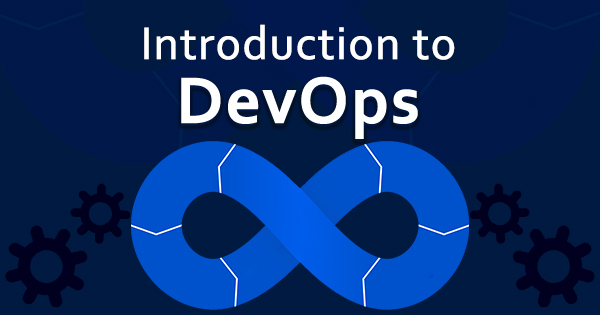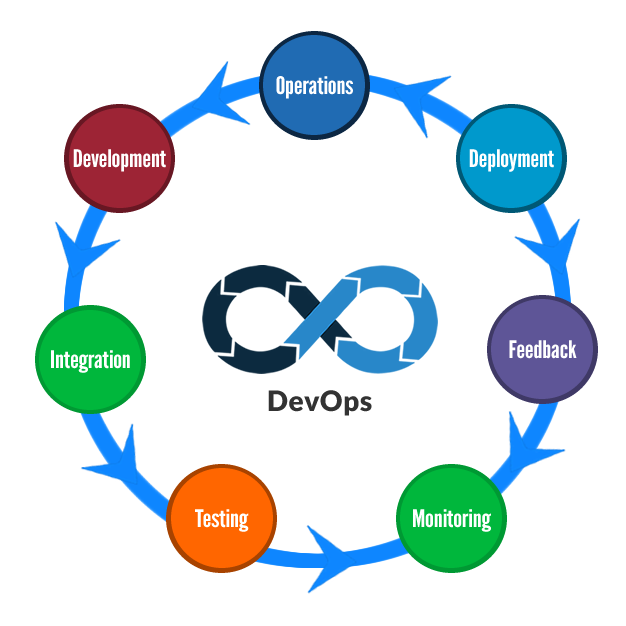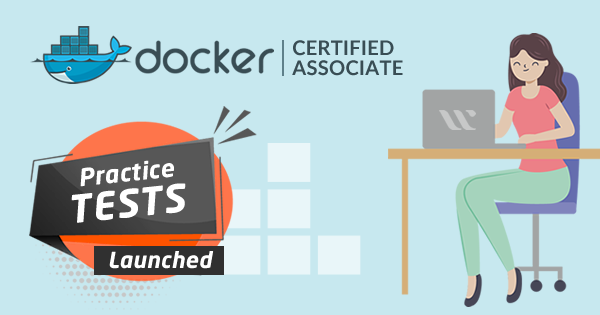Paradigm shifts in technology have been crucial in defining major milestones. The examples of the internet and social media are glaring evidence for the same. However, one of the most prominent advancements underlying these technological revolutions is the DevOps movement. Every DevOps introduction states the most explicit fact about the movement. Any individual can notice the two terms combined in DevOps, i.e., “Dev” and “Ops.”
Development and IT operations synchronize with each other to speed up the application software development process. Do you want to know more? The following discussion can serve as an introductory guide on DevOps for beginners. You can find basic information on DevOps such as its definition, tools, different practices, along with various DevOps certifications. Also, the discussion would focus on understanding DevOps as a service.
Many newbies might get confused between the terms SysOps and DevOps while choosing a better career option. We recommend you to understand the difference between the two and make the right decision for a bright career.
DevOps Introduction – What is DevOps?
The first entry in every DevOps introduction relates to the question of what is DevOps. However, this is one of the most confusing aspects because you can find many definitions of DevOps from different perspectives. The basic answer you can find on What is DevOps implies directly to a software development method with improved collaboration, integration, and communication.
However, the definition of DevOps does not follow a one-suits-all model. DevOps is a cultural shift that is responsible for improving collaboration among the development and operations teams. The clear observation, in this case, is that DevOps is not some new tool or process that makes software application development easy. DevOps involves a change in an organizational culture that can help the development and operations team to work in unison.
Steps Involved in the DevOps Lifecycle
Another prominent concern that comes up frequently with the query on What is DevOps relates to the working of DevOps. A clear insight into the DevOps lifecycle and workflow can support this DevOps introduction guide. The following phases of the DevOps lifecycle play a crucial role in explaining the total DevOps movement. These steps are not necessarily in order of succession and involve constant reiterations.
-
Continuous Development
The development stage implies its literal meaning in the fact that software development happens in this phase. The whole development process involves the creation of small development cycles for the complete project. As a result, developers can find better opportunities for faster application development.
-
Continuous Integration
The process of continuous integration follows immediately after the development stage. The different activities in this stage include planning for tests in the next phase. Most important of all, continuous integration involves understanding code for producing the desired results. The advantage of continuous development in DevOps is due to the facility of continuous integration and testing.
-
Continuous Testing
The next important step in any DevOps introduction on lifecycle refers to testing. The quality assurance teams utilize tools such as Selenium for identifying and resolving bugs in new code.
-
Continuous Monitoring
The monitoring stage in DevOps involves the detection of anomalous behavior during the production stage. The advantage of monitoring also supports the testing phase of the DevOps lifecycle.
-
Continuous Feedback
A review of the final outcome of a product can help in the consistent improvement of application performance. Customer feedback is highly crucial for improving the functioning of an existing software products and faster releases of new product versions.
-
Continuous Deployment
Continuous deployment is also an important part of the DevOps lifecycle. The deployment process involves changes in the code without any downtime for the application, website or server.
-
Continuous Operations
Different DevOps operations rely on continuity along with comprehensive release process automation. The uses of DevOps operations help organizations to improve the overall time to market.
Understanding DevOps Workflow
One of the most significant aspects of DevOps for beginners is the DevOps workflow. The workflow serves as an important tool for dictating the sequence in which input goes through various stages before reaching the final stage. The workflow details information on the actions for the DevOps process and the output from the process.
The prominent advantage of the DevOps workflow is the ability to differentiate and organizing high-priority jobs. The workflow also helps in mirroring the ideal process in configuration jobs. Some examples of DevOps workflow include parallel job execution, sequential job execution, and branch-level filtering.
Decoding the Importance of DevOps Tools
An introductory discussion on DevOps is never complete without mentioning DevOps tools. Let us reflect on the working and benefits of tools in the DevOps landscape presently. You should obtain a clear idea of the reasons to use the ideal tools for DevOps.
As we all know, DevOps is a movement or a cultural shift. Therefore, the tools in DevOps do not imply the whole DevOps culture. However, these tools form an important part of realizing DevOps objectives. Tools in DevOps can help considerably for improving an organization’s ability to ensure faster delivery of applications and services. The most interesting highlight of these tools is that they can use conventional software development and infrastructure management processes to achieve their objectives.
The importance of DevOps tools is evident in the requirement of effective tooling for running DevOps models.
- The tools work for automation of manual tasks and support teams in the management of complex environments according to scale.
- DevOps tools also work favorably for engineers to maintain control over the faster speed in development and IT operations.
The choice of DevOps tooling can be very confusing, albeit with the possibility of reflecting on your specific requirements. Evaluation of your DevOps requirements can help you build the right stack of DevOps for your company. However, your primary focus should be on maintaining seamless collaboration, cross-functionality between teams, and better automation while selecting DevOps tooling.
Now, let us take a look at the benefits of DevOps tools to find out the reasons for using them.
- The foremost reason to use DevOps tooling is speed, along with the advantage of control over applications and services. The faster innovation and product improvements with DevOps tooling can support the rise in frequency and speed of releases.
- Another notable reason to use DevOps tooling in the present times is in their capability for scaling according to requirements. The scalability advantage of DevOps tooling can help in operating and managing your infrastructure and development processes. The scalability of DevOps tooling enables you to change systems effectively with lower risk.
Must Read: List of Top 10 DevOps Tools in 2019
Best Practices in DevOps
Now, let us focus on DevOps practices in this discussion. The focus of the DevOps movement on product management is an important concern for defining best practices for DevOps. Let us take note of the different essential best practices in the DevOps movement.
- The foremost practice in DevOps refers to version control for all production artifacts. Development and Ops teams should use version control and share a single source of truth.
- The emphasis on continuous integration and continuous development separates DevOps from conventional application software development lifecycles. So, DevOps consistently depends on checking code every day and find possibilities for integration. As a result, the overheads for integrating at the end of the release reduce considerably.
- Automated acceptance testing is another notable practice in DevOps. The advantages of this practice refer to stopping the production upon identification of anomalies in the automated user test, system test, or integration.
The other important DevOps practices include the development of a high-trust culture and proactive monitoring for the production environment. Also, DevOps succeeds in removing the negative impression regarding deployments. Deployments can be very disappointing when some error pops out after weeks of hard work. However, deploying code into production daily could also influence operations. Therefore, a win-win environment for both the Dev and Ops teams involving better collaboration and teamwork is a vital DevOps practice.
DevOps as a Service Model
A promising addition to this introductory guide on DevOps would be the delivery of DevOps as a service (DaaS). The DaaS is a delivery model for a combination of tools facilitating collaboration among software development and operations teams. Generally, DaaS providers operate by collecting separate tools for different aspects of the overall process. The different tools operate as a connected unit with the disconnected collection of tools being a prominent advantage. DevOps as a Service ensures that all actions in software delivery are subject to track.
Another prominent benefit of DaaS providers is the facility of feedback to the developer group upon the identification of production anomalies. DaaS model also supports the covering up of data and information management complexities across the toolchain. Different individuals and teams could utilize interactive and responsive interfaces for obtaining the required functionalities of certain tools with the DaaS model. Since DaaS integrates specific tools for DevOps into a single system, it can achieve better monitoring, management, reporting, and collaboration.
DevOps Certification can Take You Ahead
Proceeding ahead in this DevOps introduction guide, let us reflect on the various types of DevOps certifications.
f you have curiosity regarding a career in DevOps, then a certification is the first thing you should focus on! Individuals associated with different roles in product development could opt for the certifications to advance their careers. Developers interested in network operations, administrators interested in coding, scripting, and development or test engineers interested in deployment or system administration are ideal candidates for DevOps certification.
The popularity of DevOps is one of the formidable reasons for which DevOps certified professionals are highly demanded. Various institutes and service providers have come up with DevOps certifications that prove the top DevOps skills of candidates. Now, let us take a look at the different benefits of certification in DevOps.
- The foremost benefit of DevOps certifications is the broadening of job prospects. Since DevOps is comparatively new in the market, with many companies adopting it quickly, DevOps certified professionals are very important assets for organizations. Therefore, IT professionals could expand the horizon of career opportunities with a certification in DevOps.
- Another prominent benefit of certifications in DevOps in every DevOps introduction guide refers to skill and knowledge improvement. You can learn more about the DevOps tooling and its implementation in your organization.
- Nobody can ignore the promising salary estimates that you can fetch with a certification in DevOps. The market demand for DevOps professionals is one of the prominent reasons for the higher salaries of IT professionals with DevOps certifications.
- The prominent advantage of certification in DevOps you can find in a DevOps introduction guide is better productivity. You can showcase your capabilities as a DevOps professional for improving the effectiveness of different IT processes in an organization. Furthermore, DevOps professionals with certifications can contribute formidable value to an organization as well as the staff.

Kubernetes certifications such as Certified Kubernetes Administrator and Certified Kubernetes Application Developer are also specific to the Kubernetes container orchestration platform. Also, you can note that these certifications are ideal for different specific job roles.
Platform-specific certifications such as AWS Certified DevOps Engineer Professional or Microsoft Azure DevOps Solutions are ideal for pursuing DevOps career on respective platforms. However, candidates who want to pursue a career in DevOps can also focus on official DevOps Institute certifications. Some of the notable DevOps certification entries from the DevOps Institute are as follows.
Final Words
So, the above DevOps introduction gets you familiar with the things to know before starting a DevOps career as a beginner. Once you have a clear impression of the basics about DevOps, you can find the confidence to take the next step. We have looked at the prominent advantages of DevOps movement which is bound to sustain for the long-term.
Furthermore, a career in DevOps would provide the best advantage of preparing a candidate for flexibility in their career. Also, DevOps training contributes to the personal development of an individual due to the focus on interpersonal and collaboration skills. So, if you want to learn more about DevOps, then this is the right time!
If you are a beginner, you can enroll in some basic DevOps training courses for a particular tool. In case you are preparing for any certification, then you can enroll for the DevOps certifications training courses and get ahead to have a bright career as a DevOps professional!
- Top 10 Highest Paying Cloud Certifications in 2024 - March 1, 2023
- 12 AWS Certifications – Which One Should I Choose? - February 22, 2023
- 11 Kubernetes Security Best Practices you should follow in 2024 - May 30, 2022
- How to run Kubernetes on AWS – A detailed Guide! - May 30, 2022
- Free questions on CompTIA Network+ (N10-008) Certification Exam - April 13, 2022
- 30 Free Questions on Microsoft Azure AI Fundamentals (AI-900) - March 25, 2022
- How to Integrate Jenkins with GitHub? - March 22, 2022
- How to Create CI/CD Pipeline Inside Jenkins ? - March 22, 2022







